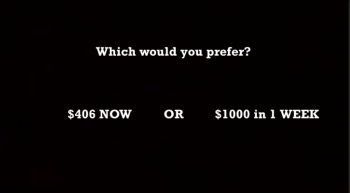Brendan Kelleher

The overall flexibility and diversity of ideas in [my Bass Connections] project have allowed me to delve into these various fields and find the topics that excite me the most while working towards an end product with real-world implications.
Degree
Neuroscience ’24Project Team
When I first arrived on Duke’s campus as a wide-eyed freshman, I was simultaneously excited and unsettled by the endless range of possibilities that laid ahead of me in my undergraduate experience. I had come to Duke for many reasons, but particularly to explore my spectrum of interests that ranged from computer science, to the biological and behavioral sciences, and even to population health. At the same time, however, I felt a looming pressure to commit myself to a path and pursue niche opportunities.
As an aspiring physician, I intended to involve myself in research, yet with no prior experience, I was clueless on where to start. Beyond that, I doubted that I would find an opportunity that would allow me to simultaneously pursue my various interests, especially amidst the strain of the COVID-19 pandemic. Fortunately, I was wrong.
As part of the data science subteam on my Bass Connections project, Alcohol Use Across Countries and Cultures, I immediately felt a strong sense of alignment with the team and its interdisciplinary yet applied goals—applying my learning in computer science to build a product that spanned the realms of global health and neuroscience. The goal of the project—to construct a computer-based dimensional assessment that could be culturally adapted to assess Alcohol Use Disorder (AUD) behaviors across countries—resonated deeply with me and inspired me to start working on the project the summer after my freshman year. The work was like nothing I had done before, as I worked with a group of other undergraduates to design and build various “games” to assess behaviors related to disordered alcohol use. Through weekly communication inside and outside of our subteam and with the guidance of our postdoctoral mentors and faculty, we were able to create an initial build of the Alcohol Use Behavioral Phenotyping Test (AUBPT), which we intend to implement in low- and middle-income countries where AUD exerts a growing burden.

Of course, the process of creating AUBPT was far from linear. After encountering increasingly problematic issues with the original software used to build the groundwork for AUBPT over the summer, we made the decision to completely switch our build software to the Unity engine. Not only did this mean familiarizing ourselves with an entirely new set of programming tools (including learning a new programming language), but it also meant that we would have to recreate some of the games from scratch. Through seeking advice from (and occasionally imparting advice to) my peers and faculty, I was able to adjust to the transition and create my part of AUBPT, line by line, all the while learning a plethora of programming and teamwork skills.
Over the past year in Bass Connections, I have gained invaluable experience in the realms of computer programming, behavioral science and global health. The overall flexibility and diversity of ideas in the project have allowed me to delve into these various fields and find the topics that excite me the most while working towards an end product with real-world implications. In this process of examining the neural correlates of AUD behavior through the Research Domain Criteria (RDoC) framework, for example, I discovered my passion for neuroscience, which motivated me to subsequently pursue the major as well as begin working on a review paper with my Bass Connections mentor that focused on neuroimaging in substance use disorder (SUD). The project’s flexible format also helped grow my leadership skills, as I was able to step up and take on new responsibilities, whether it was communicating our subteam’s work with the overall team or working with outside partners to troubleshoot our app when necessary. Overall, Bass Connections has shown me that you truly do not have to narrow the breadth of your passions to conduct research and create meaningful change in the world.
December 2022
